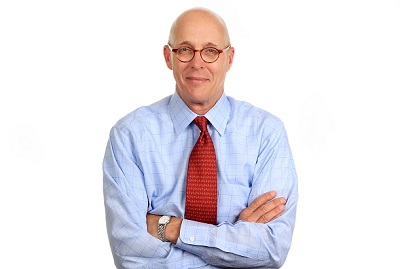This year’s Super Bowl was one of the most ad-heavy ever. J. Walker Smith, Executive Chairman of The Futures Company argues that one campaign stood out head and shoulders above the mass of mediocrity. Here’s why…
All in all, Super Bowl 50 was probably not the best year for creative, but one campaign stood out head and shoulders above the mass of mediocrity.
The annual sporting extravaganza yet again served up some of the highest budget campaigns of the year, with brands vying to compete for the attention of a worldwide audience. Overall, humour and celebrities were the core themes of the day, but despite brands forking out a record $5 million for a 30-second spot at the big game, the quality of creative left a lot to be desired.
While various companies had their own scoring systems – from social buzz to video virality and brand sentiment – there was one ad in particular that beat its rivals by capturing a key marketing quality that stands for something much bigger in the long-term – and it was the ad that most resonated with me.
MINI’s #DefyLabels captures the essence of everything that great marketing should be. It’s something I like to call ‘Big Tent Branding’ – it appeals to consumers’ sense of belonging offering a narrative of meaning that is expansive, not exclusive. Not to mention the ad is wholly consistent with polyculturalism, bringing together a diverse range of celebrities, from Serena Williams to Harvey Keitel, Abby Wambach to T-Pain, plus a couple of ordinary non-celebrities. It perfectly brings together people with a diversity of identities under a Big Tent that enables everyone to belong.
In a world where the traditional narratives of inclusion and togetherness have lost allegiance and devotion, there is a big opportunity for brands to step in and step up, just as MINI has done here.
Contemporary marketing strategies are all about zeroing in on the individual. The promise we see in big data and the uses we make of programmatic advertising are to deliver highly individualised, ultra personalised, singularly crafted offers and messages to distinct individuals, where every person gets something unique and tailored to him or her.
Yet today people exist in a tug of war between individuality and community. In our contemporary marketplace, offering too little community and our current focus on dissociated hyper individuality leaves people longing for belonging.
There is a big opportunity in this overlooked need. Belonging should be on our radar – not to go back to selling the very same thing to everybody, but rather to remember that even steeped in uniqueness people still want to belong. People are searching for ways to attach themselves to something – for reassurance. Belonging is a matter of identity.
The sense of belonging that people crave is not narrow, or a niche in which to live in isolation, rather it is a platform shared with others in an integrated ecosystem that connects to an overarching narrative of meaning. Not one that surpresses identity, but rather embeds identity within belonging. That’s what our marketing strategies should be chasing.
Brands should not make the mistake of equating personalisation with narrowing the target market. As Bryon Sharp, director of the Ehrenberg-Bass Institute at the University of South Australia, stressed in his book How Brands Grow, category dominance, not to mention, brand survival demands more than can be added up in a small niche.
MINI offered a message that went beyond the sort of ‘cute’ creative that has come to dominate the approach to Super Bowl ads. It was a message about a brand that wants to get beyond narrow niches. It wants to drop labels and be a brand for everyone, thus uniting people in their diversity. It’s a great example of a brand being brave.
It’s not about category attributes or benefits, it’s a social message of inclusion. It’s not being inclusive by saying: “We’re for gay people” or “We’re for black people”, it’s saying “Forget all that, we’re beyond the labels that wall people off from one another. We defy that. We’re for everyone.”
The logic of Big Tent branding has been understood for decades. And now, in increasingly turbulent times, where consumers are racked by social inequality, economic uncertainty and the threat of terrorism, it’s time to go back to the future.
Well done Mini for getting it right at Super Bowl 50.
By J. Walker Smith
Executive Chairman
The Futures Company
About J. Walker Smith:
J. Walker Smith is Executive Chairman of The Futures Company, the leading global futures consultancy, part of the Kantar Group of WPP. He has been described by Fortune as “one of America’s leading analysts on consumer trends,” and he is the co-author of four highly regarded books, a columnist, a blogger, an avid daily tweeter, and a former public radio commentator.
Smith is a 2012 inductee into the N.C. Advertising Hall of Fame, and in 2014, he won the WPP Atticus Award for Strategy and in 2013 for Consumer Insights. He also holds a doctorate from the University of North Carolina at Chapel Hill.
